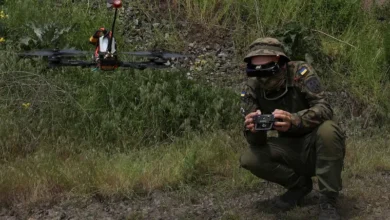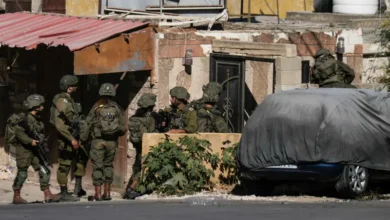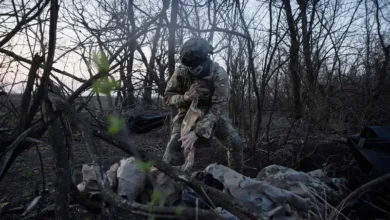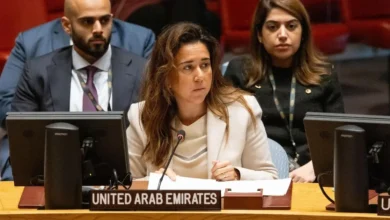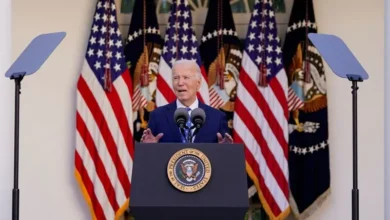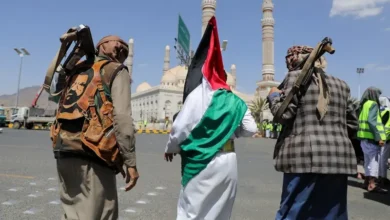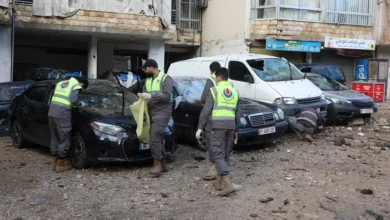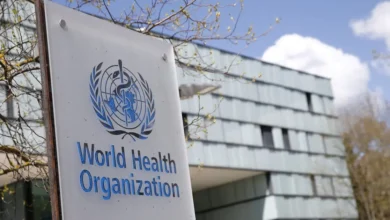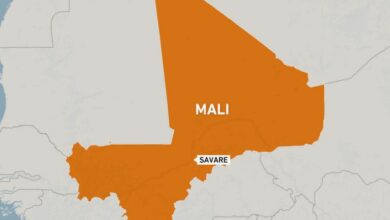‘I yearn for the girl I used to be’: Gaza women tell their stories
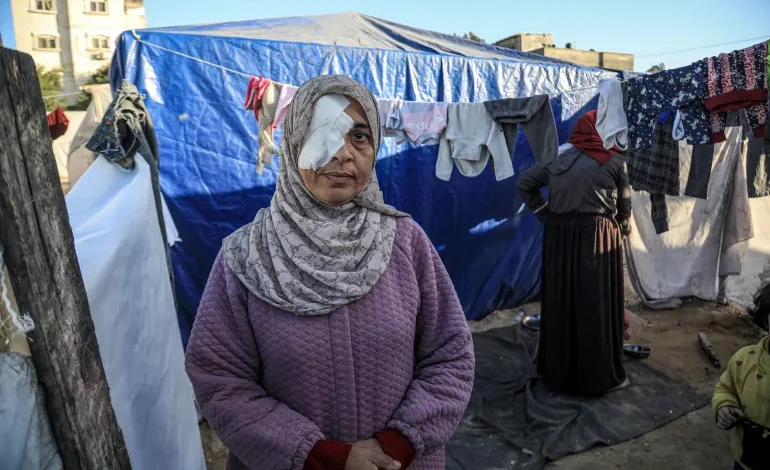
On International Women’s Day, the women of Gaza are continuing their daily struggle to care for their children and families, and to stay alive. Four women who have been displaced by Israel’s war on Gaza since October 7, along with their families, talked to Al Jazeera about their lives now.
‘I’ve forgotten what it means to be a woman’: Nada Abdelsalam
Nada Abdelsalam, 34, sits beside her children in front of their tent, baking bread over a wood fire.
Since the onset of the war, Nada says she has lost track of the passing days, consumed by the ceaseless demands of caring for her eight children from dawn to dusk in difficult conditions.
“Women in Gaza have borne the brunt of this war. Our burdens have multiplied, and our sense of privacy has vanished,” Nada says as she tends to the fire, adding more loaves.
“Here I am, sitting on the street in a tent, deprived of life’s basic necessities. No water, no electricity, no bathrooms, no sanitation. Nothing,” she adds.
Nada was forced to flee from the Maghazi refugee camp in Gaza City to Deir el-Balah in central Gaza due to Israeli evacuation orders early in the war. Her home was bombed and destroyed.
“I came out with only the clothes I was wearing and some clothes for my children,” Nada says. “I never imagined I’d reach this point. My closet was once full of clothes.” She says she feels ashamed to go outside her tent in the shabby, worn-out clothes she is left with.
“I wear a prayer robe for everything – to sleep in, to go out,” She adds.
The war has robbed Nada of more than just her home and possessions, she says. She has lost her sense of self too.
“I’ve forgotten what it means to be a woman in this war. I feel decades older than my actual age. Even my appearance reflects it.”
Nada is one of countless women in Gaza who have been enduring similar exhaustion and heightened responsibilities during the ongoing war.
“Before the war, we bought bread from the bakery, laundered clothes with a machine and lived in clean, modern apartments,” Nada recalls. “Now, we’ve regressed to Stone Age methods, baking over open fires and handwashing laundry.
“It’s a suffering I wouldn’t wish upon any woman.”
‘This war requires great strength from women’: Sawsan al-Zein
In a nearby tent, Sawsan al-Zein, 50, sits with female relatives. The mother of eight lost an eye after being seriously injured in the first week of the war when her house on Salah al-Din Street, east of Gaza City, was bombed.
“We were sitting normally that day, following the news of the war, when suddenly I found myself lying in blood,” she recounts.
“At the hospital, they told me that my eye was seriously injured, and it was removed immediately. I have one eye now, and I still need to complete my treatment abroad. My hand was injured too, and I cannot move it.”
One of her daughters and her son-in-law were killed in the bombing, after which the family fled to Deir el-Balah about five months ago.
“Losing my eye affected my psychology greatly,” Sawsan says. “Once the pillar of my household, responsible for managing everything big and small like any mother, now I struggle with basic chores. I can’t cook over an open flame or carry objects due to my injuries.”
Despite her daughter’s assistance, Sawsan mourns the impact her injuries have had on her normal life.
“Previously, my children used to love my cooking, but now, I’m restricted by my condition,” she says.
“Now I cannot, especially in these circumstances, which require great strength from mothers and women to manage their family affairs.”
Sawsan’s only wish is for the war to end soon, so she can return home to northern Gaza, even if it lies in ruins.
“Life in displacement is harsh, let alone for an injured woman like me who needs special care.” Sawsan says.
“We suffer in the simplest aspects of life. Our privacy as women is eroded. Our hearts are heavy with the loss of loved ones and fear for children. What happened to us is enough.”
